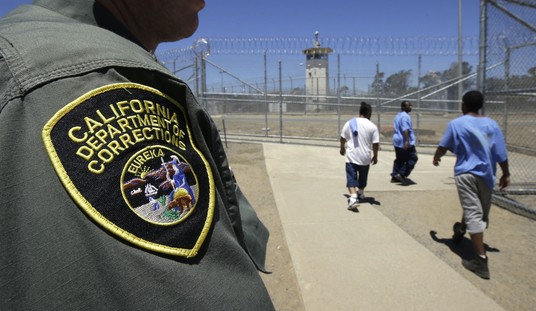Plus ça change, plus c’est la même chose. Just how much has the needle moved on racial issues in the weeks of unrest since the police killing of George Floyd? Perhaps not as much as one would guess, although the killing itself has boosted efforts to eliminate chokeholds for good in American policing.
Today’s poll from ABC/Ipsos contains some good news for House Democrats pushing their version of police reform. More than six in ten Americans want a federal ban on chokeholds, including a majority of Republicans and majorities in every ethnic demographic. When it comes to other demands in terms of racial reconciliation, however, the nation remains pretty much where it was at before the Floyd killing:
As the country grapples with a widespread reckoning over the prevalence of racism, majorities of Americans are resistant to renaming U.S. military bases that carry the names of Confederate leaders, and are voicing particular opposition to providing descendants of slaves with reparations, according to a new ABC News/Ipsos poll released Friday.
While 56% are opposed to changing U.S. military bases named for Confederate leaders, which stand as a reminder of the nation’s complicated history with race, 42% of Americans support the move.
Nearly three-fourths of Americans believe that the federal government should not provide payments to black Americans whose ancestors were slaves to compensate for the toll of slavery. Only 26% of Americans are in favor of reparations.
As ABC points out, that’s barely any different than when they began asking that question twenty-three years ago:
Although we have seen large changes in opinion on a wide variety of issues revolving around race in America, there has been only a slight change in attitudes about reparations over the last 20 years. An ABC News/Washington Post poll from June 1997 found that only 19% of Americans backed providing black Americans whose ancestors were slaves with payments, while 77% opposed it.
In 1997, 65% of blacks and a meager 10% of whites supported reparations, a split that is about the same as this week’s poll.
Why might that be? Perhaps in part it’s because chokeholds happen in real time, where people can do something about it. Slavery took place lifetimes ago and can’t be erased with cash (nor should it be). Banning chokeholds might save some lives in the present and future, but paying reparations won’t change anything about the past or present. Does anyone think the issues of slavery and race would magically evaporate after reparations? Of course not, and that’s even apart from the issue that reparations would be a wealth transfer from people who never owned a slave in their life, many of whose ancestors came to the US after slavery ended. The idea of reparations is a persistent mythology with no legal or political basis at all.
If reparations are a dead end, politically and socially, it’s not the only mythology that can be described as such. The results on the renaming of Confederate bases and removing Confederate statues might be a little more surprising after the last couple of weeks. Ipsos notes the breakdowns on those questions:
A majority of Americans (56%) oppose ‘changing the names of U.S. military bases that are named after Confederate leaders’.
Independents, who are split on removing statues, are more opposed to renaming bases (59%) than supportive (40%).
African Americans are also less supportive (67%) of renaming bases.
“Less supportive” in this context means in contrast to the question of reparations. Frankly, this one surprises me, because no one has ever made an argument for why we honor generals who took up arms against the US and betrayed the country, other than we’ve done it for decades or some sort of need for ongoing reconciliation with the South. It’s as foolish as the reparations question in that sense, if at least less expensive; who’s still around with whom we need to reconcile? Instead of naming bases for a series of Confederate mediocrities that defended slavery, we should at least consider naming those US military bases after the Union mediocrities that actually defended the United States.
That’s not so much the point of this poll, however. These results show significant splits between African-Americans and everyone else on these two issues, without much movement at all. It’s another sign that both sides are talking past each other, and probably will as long as both sides cling to their mythologies.







Join the conversation as a VIP Member